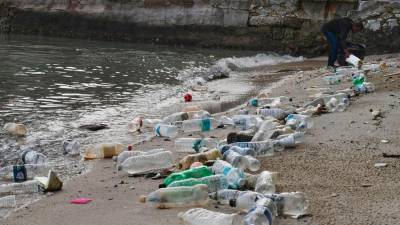PETALING JAYA: Reef Check Malaysia (RCM) has called on the government to commit to a global plastic treaty, adding that the problem is serious.
“Single-use plastic contributes to 50% of plastic production. Even with the increase in recycling efforts, 70% of plastic waste would still be burned or burried in landfills,” RCM said in a statement on Wednesday.
It also said plastic exacerbates the dangers of climate change and explained how the chemicals used to manufacture plastic could cause life-threatening health risks.
“The chemicals used in the production of plastic could cause breathing problems, deformities and stunted brain development.
“Plastic factories are also prone to fires, which could endanger lives and cause damage.”
RCM added that microplastics have been found in human tissue, which could lead to health problems such as increased risk of breathing ailments, disruptions to reproductive and gastrointestinal health and cancer.
RCM said the plastic industry is the fastest growing producer of industrial greenhouse gases in the world.
“This growth is due to the production, usage and disposal of plastic, that is expected to contribute up to 13% of the total remaining carbon budget by 2050.”
RCM urged measures to protect human health from the hazards of plastic production, use and disposal, including stronger research, monitoring and compensation for affected communities.
It said global action should replace ineffective voluntary measures, with binding targets to cut plastic production, eliminate hazardous chemicals and phase out unnecessary products.
The group also called for better product design to promote reusability, stricter control of plastic-related chemicals and waste prevention through reuse and refill systems.
It cautioned against alternatives such as certain biodegradable plastics and chemical recycling, that it said could harm both people and the environment.
“RCM hopes that the government would commit to these (goals).
“We believe that sustainable development depends on a healthy population.
“This could be a turning point to end plastic pollution.”
